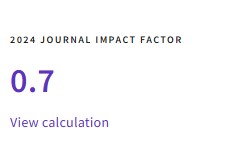Physical therapy approach to Crossfit: ethnographic study
DOI:
https://doi.org/10.24310/riccafd.2020.v9i3.10108Keywords:
etnography, training, crossfit, physical therapy, culture, interprofessional work, injuriesAbstract
CrossFit is a high intensity training modality. It is considered a community with a physical and social cultural environment. Physical therapists are health professionals who specialize in the movement system, who have a unique role in prevention, “fitness” and health promotion. The purpose of the research was to explore and describe the CrossFit community in Puerto Rico, to learn about its culture, dynamics, and how its components could have some relationship with physical therapy services. A qualitative investigation with ethnographic design was carried out following the theoretical framework of community sense. Two centers affiliated with CrossFit were visited, where participant observation, sociodemographic profile, field notes and semi-structured interviews were made. As a result, CrossFit community in Puerto Rico could be described highlighting benefits and characteristic aspects of its culture; the group and the coaches are decisive; Participants indicated possible risk and prevention factors for injuries and the contribution that physical therapy can make was recognized.
Downloads
Metrics
References
2. What is CrossFit? [Internet]. CrossFit. [cited 2018May14]. Available from: https://www.crossfit.com/what-is-crossfit
3. Crockett MC, Butryn T. Chasing Rx: A Spatial Ethnography of the CrossFit Gym. Sociology of Sport Journal. 2018;35(2):98–107.
4. Klimek C, Ashbeck C, Brook AJ, Durall C. Are Injuries More Common With CrossFit Training Than Other Forms of Exercise? Journal of Sport Rehabilitation. 2018;27(3):295–9.
5. Claudino JG, Gabbett TJ, Bourgeois F, Souza HDS, Miranda RC, Mezêncio B, et al. CrossFit Overview: Systematic Review and Meta-analysis. Sports Medicine - Open. 2018;4(1).
6. Notini Arcanjo G, Cunha Lopes P, Simão Carlos P, de Queiroz Cerdeira D, de Paula Lima PO, Vilaça Alves J. Prevalência de sintomas osteomusculares referidos por atletas de Crossfit®. Motricidade. 2018;14(1):259-265.
7. Mcmillan DW, Chavis DM. Sense of community: A definition and theory. Journal of Community Psychology. 1986;14(1):6–23.
8. Portney LG, Watkins MP. Foundations of clinical research: applications to practice. Harlow: Pearson Education; 2014.
9. Fetterman D. Ethnography. London: SAGE; 2001.
10. Creswell JW, Poth CN. Qualitative Inquiry & Research Design: Choosing among Five Approaches. Thousand Oaks, CA: SAGE; 2018.
11. Bevington G, Wolcott H. Transforming Qualitative Data: Description, Analysis, and Interpretation. The Modern Language Journal. 1996;80(3):405.
12. Gómez ÁVP. La etnografía como método integrativo. Revista Colombiana de Psiquiatría. 2012;41(2):421-428. doi:10.1016/s0034-7450(14)60015-9.
13. Eivind, S. Training for life - An ethnographic study of the Norwegian CrossFit box. DUO. https://www.duo.uio.no/handle/10852/66843?show=full. Published February 26, 2019. Accessed April 29, 2019.
14. Dominski FH, Siqueira TC, Serafim TT, Andrade A. Injury profile in CrossFit practitioners: systematic review. Fisioterapia e Pesquisa. 2018;25(2):229-239. doi:10.1590/1809-2950/17014825022018.
Downloads
Published
How to Cite
Issue
Section
License
All the contents published in Revista Iberoamericana de Ciencias de la Actividad Física y el Deporte are subject to the Creative Commons Reconocimento-NoComercia-Compartirigual 4.0 license, the full text of which can be found at <http://creativecommons.org/licenses/by-nc-sa/4.0>
They may be copied, used, disseminated, transmitted and publicly exposed, provided that:
The authorship and original source of your publication (Journal, editorial and URL of the work) are cited.
They are not used for commercial purposes.
The existence and specifications of this use license are mentioned.

Copyright is of two kinds: moral rights and patrimonial rights. Moral rights are perpetual, inalienable, inalienable, inalienable, inalienable and imprescriptible prerogatives.
In accordance with copyright legislation, Revista Eviterna recognizes and respects the moral rights of the authors, as well as the ownership of the economic right, which will be transferred to the University of Malaga for dissemination in open access.
The economic rights refer to the benefits obtained by the use or disclosure of the works. Revista Iberoamericana de Ciencias de la Actividad Física y el Deporte is published in open access and is exclusively authorized to carry out or authorize by any means the use, distribution, disclosure, reproduction, adaptation, translation or transformation of the work.
It is the responsibility of the authors to obtain the necessary permissions of the images that are subject to copyright.
















9.png)
